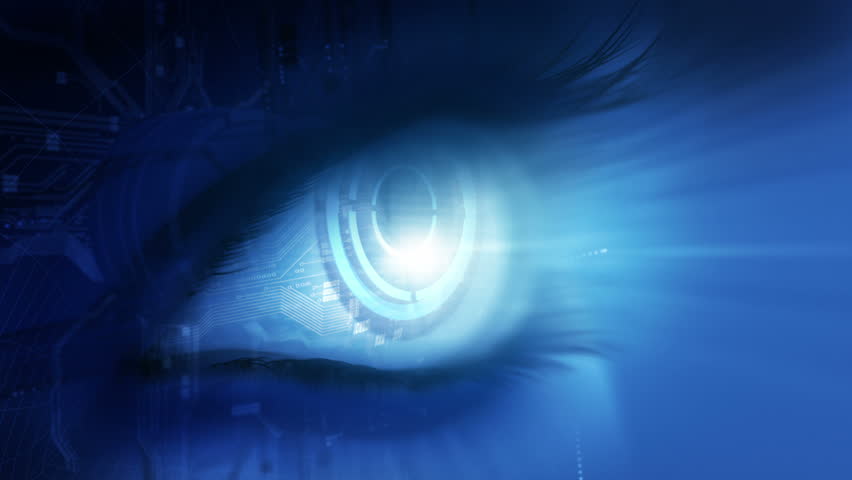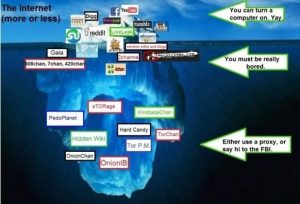By: Grainne Rhuad
I’m looking at a box of books that I inherited. I have absolutely no use for them. It’s a complete mail-learning series on how to start a business that my great grandfather wrote. Nobody needs this anymore, although it is saved somewhere in the National Library. I am absolutely sure this is not on the internet, not even searchable, not even in the dark web. When I give or throw this box of books, or booklets really, away, they will likely be recycled and never be found or read again.
It makes one wonder, where we are with the dream of the information super highway. Where are we in our information gathering? How much has been scanned? How much has been saved? What will be found necessary and what will be lost entirely?
At this point in human history we have likely lost more than we ever would have time to discover before doomsday. And yet? People can find tax information on their rum running cousins several generations past. You can view marriages both legal and illegal. There is private medical information for the taking and we put more of our private lives on display daily. Is there such a thing as information you can’t find?
What is pretty clear is you can find and purchase with ease, any goods, service that you want. One doesn’t even have to do a deep web search to discover this, you can pretty much find whatever pops into your head on craigslist or Facebook market for that matter. Today, on a popular media site, I watched a bride die in a helicopter crash. Nothing is usable, undoable, unaskable anymore.
The web’s first thought, driven by our collective consciousness when coming into existence was to provide for desires. But can we find real information and truth and how do we know it when we see it?
Like the popular television we consume, shows like Mr. Robot or movies like Snowden, we are almost comforted by the fact that what the web needs to know, it will find a way to know. However, how close are we to a Mr. World figure as produced in the mind of Neil Gaiman for American Gods?
Well, pretty close; because, if we believe it, it will occur eventually.
For example, if I go looking for a nuclear bomb, and I have the money and time a real desire and need for it and I “believe” I will find it, I will eventually find a way to do it. I may spend hours, even days or months in the negotiation of it in dark edges of places I don’t go, normally. But if I believe it, it will happen.
In this way, the internet is a self- fulfilling world. Anything we want we will eventually find, because there is someone on the other end looking to be the fulfillment.
Now getting to both the Deep and the Dark are fairly easy. You can get there like I did using google. Gatekeepers and day trippers alike are more than happy to publish how-to’s to help you both get there and stay out of trouble. I used This One written by Adrian Lamo, which was either the first or second after I googled “getting on the dark web.” Just to show how incredibly easy it is. I ended up using Tor. You can get it if you don’t already have it here: Tor Browser or you could spend the month setting up your own network of URL’s, whatever.
The Deep Web is not an inherently scary or bad place. As almost everyone will point out, it is very simply a way to get to sites that cannot for whatever reason, easily be cataloged to a search engine. An example might be something like a site for fan fiction based on the Oregon Trail that I created in 1995. Nobody really cares, not google, not Bing. But it exists somewhere. (I forgot the address myself) If you wish to stay out of trouble, stay out of known troubling sites. Sites like the Drug networking site known as Silk Road or sketchy porn sites likely to hold illegal porn. Or, conversely, if you’re looking for that, now you know.
1. Get a VPN, from an established service that doesn’t keep logs. Preferably paid.
2. Get Tor (There are other browsers, but much less reputable)
3. Research and read guides, especially if there is any question of legality and safety. People want to tell you and criminals aren’t looking to connect with unintended clients, it just puts them at risk.
If you’re looking for something darker like something murdery, odds are you’ll find it at another deep web outlet, TAILS. TAILS is entry level forum for murder, live porn beyond the norm, buying humans and drugs, trafficking of all sorts, terrorism. Live torture and/or execution.
I was also introduced to the idea that the NSA was likely spying on me just for researching the article (Hi there!)
Yes, sometimes we are blocked from our desired freak fest searches. It occasionally happens that we can’t view things because of our country or our VPN or maybe we are sharing our Wi-Fi with a known troublemaker. However, we have at our fingertips workarounds, people want you to know how to get to things, this is the power of being connected to a web, the availability of sharing information.
But how easy is it for the average person to get in and effect someone or something halfway across the world? Can Russia really affect our elections? How easy are things like this?
As it turns out it’s pretty easy. Just a simple afternoon search will introduce you to websites designed to help you do just that and more. They are even semi-free and you don’t have to delve past the normal internet.
Enter “Shodan” the self-proclaimed “scariest search engine” which professes the ability to find what can’t be found elsewhere.
From Shodan you can access many databases, printers, scanners, home security systems many which haven’t bothered setting up security beyond “password” or “12435” With default passcodes in place for many private and business computers it’s as easy as 1.2.3 to get into. And it’s not only hackers using this. Shodan is available for hire, IT services regularly use it to run scenarios on their companies’ systems. Cities use it to check things like street lights and CCTV. “Shodan runs 24/7 and collects information on about 500 million connected devices and services each month.”
As this article explains, Matherly, who created Shodan over three years ago as a project, on can search up to ten results without a paid account. After you pay you can run up to 50 results a year. If you want to be gathering more information, the company requires you to provide information about what you want to achieve. This, in hopes to discourage nefarious business. However, if you just wanted to redirect a CCTV, you could easily do that with your ten free and anonymous results.
When explaining how this service is even possible and whether or not it should be H.D. Moor, chief security officer of Rapid 7 stated, “It’s a massive security failure.” Who knows how long servers like this will be as easy to find. However, they cannot be lost. Instead in the future they will go into storage in the Deep Web.
In some ways, the internet is exactly like what your Sunday school teacher feared. The Devil does live there, because, obviously, the devil was always in the details. And there are details in the internet that make a mark on life both daily in the urban dweller’s domicile and globally. Like the fact that someone can create a hoax around a person’s death that upsets an entire economy. This is what happened on June 25th when someone used 4chan to “leak” the death by automobile of Viterik Buterin, the inventor of Etherium, a blockchain based chryptocurrency. This was a simple as “a user starting a thread with the tagline: “Vitalik Buterin confirmed dead. Insiders unloading ETH.” in 4chan’s /biz/ forum.”
 Even though Viterik Buterin posted himself and his blockchain ledger, handwritten via twitter, it still got people worried enough to pull their money from his service. The problem here in everyday terms is the power of currency is in the immutability of the codes. If there is the perception that the chain of command around the currency code is or can be disrupted, the service is called into question.
Even though Viterik Buterin posted himself and his blockchain ledger, handwritten via twitter, it still got people worried enough to pull their money from his service. The problem here in everyday terms is the power of currency is in the immutability of the codes. If there is the perception that the chain of command around the currency code is or can be disrupted, the service is called into question.
This is the intersection of reality and fantasy. This hoax just made someone’s fantasy a reality long enough to fuck with a company’s capital. Four billion of that company’s capital. It also disrupts other online chryptocurrency. It can build another company out of nowhere to deal with the perception of threat. This is occurring in not-quite reality, making the consequences real.
But will the next-door neighbors of the deep web and dark web itself become perfectly acceptable search engines like Google? If 4chan is any indicator, yes. From being a place where H.S. students and teachers alike could take to in order to fill their weird little infocracies to be a doorway to terrorism recruiting and murder for hire, 4chan has both stymied the inertweb police by staying ahead of the privacy game while still becoming pretty middle of the road in a lot of its board and users. The idea really is that anyone can use it. And what does “anyone” typically do after getting their fill of porn. Usually they monetize the shit out of the audience what was different about 4chan was nobody wanted to monetize it.
4chan which started as a place to share anime, fast became the place to produce Lolz and basically every meme we use or rather, overuse. Rickrolling and mayhem became the call of 4chan. The place where Anonymous was born. All was created by a high school student who needed a board. Modelled off a board for images called 2chan that was huge in Japan. It was meant to be anonymous. “Anonymity enables people to do what they otherwise wouldn’t” States Christopher Poole (creator) One thing that made a difference early on was the way posts showed: Newest ones at the top, not voted like at Reddit and Tumbler. It gave everyone equal headlining ability. And, made seen things that would normally go unnoticed. It’s what we originally thought search engines were going to do before they became corporate and “for-hire”. Snuff Films, Child Porn and other illegal content was removed by himself and volunteers. You were not supposed to use 4chan to plan invasions or unrest or protests. He also walked away from it in 2015.
Despite the rules, it was the anonymity that gave this board it’s hoard-like life. People could behind their keyboards, relatively sure of safety connect with massive people to gang up on anyone or anything. Sometimes this worked for good, like in the case of Anonymous going after the Church of Scientology in 2009 when their crimes against ex-members got too much for many people to bear. Most other times, it gave a space to ugly things like the “Fappening” in which the release of private nude photos of celebrities where lifted from their devices and republished.
This resulted in Poole posting the Digital Millennium Contract Act policy which had been in place before but not widely posted. Indeed, Poole had always cooperated with governing agencies around broken laws. However, his grown-up site lost its collective mind and turned on him for “selling out.” He now had the focus of the Horde.
“That is not dead which can eternal lie,
And with strange aeons even death may die.” -H.P. Lovecraft.
Will all of this be eternal? Not likely. All things go away eventually. The problem really with the internet and our trust in it is when it goes, we will lose everything we tried to sort and condense. Like the books I’m most likely going to throw out, the need for the things of the internet in whatever future age we reach, will simply dissipate. Without anyone to manage it, it will dissolve and likely disappear faster than any hard copy could. In this way, the internet ultimately can hurt us. All it would take is some sort of global disaster that takes us away from the internet for a year or more and we would lose volumes of our information, history and wisdom. This doesn’t have to be an earth cracking disaster, it can be as small as a virus.
The real problem of the internet is we must feed it in order for it to sustain us. In this way, it becomes our new God. Our Mr. World. It gives back to us, if it gets the attention and intention we need. It becomes a relationship that each of us give to. Every time you want a book for slightly cheaper than a used book seller would sell. Or you wonder how much it would cost to scratch that personal itch of yours. As humans, we have always been capable of committing the unspeakable. The internet allows us to commit the unthinkable because the internet has learned to anticipate us.
Or as H.P. Lovecraft put it, “Someday the piecing together of dissociated knowledge will open up such terrifying vistas of reality, and of our frightful position therein, that we shall either go mad from the revelation or flee from the light into the peace and safety of a new Dark Age.”




The problem with electronic media is that it can be altered or deleted completely. It’s a backhanded way of “book burning.”
Facebook has started censoring everything on its site. Today I was banned from Facebook for 7 days. Someone had sent me a link to an article that said that Subway was removing ham from 300 of its restaurants because ham was offensive to Muslims. My offending statement in “private” chat?
“Screw the Muslims. If they don’t want ham, they shouldn’t order it. Let others order what they want.”
You can now find me at USA.life.